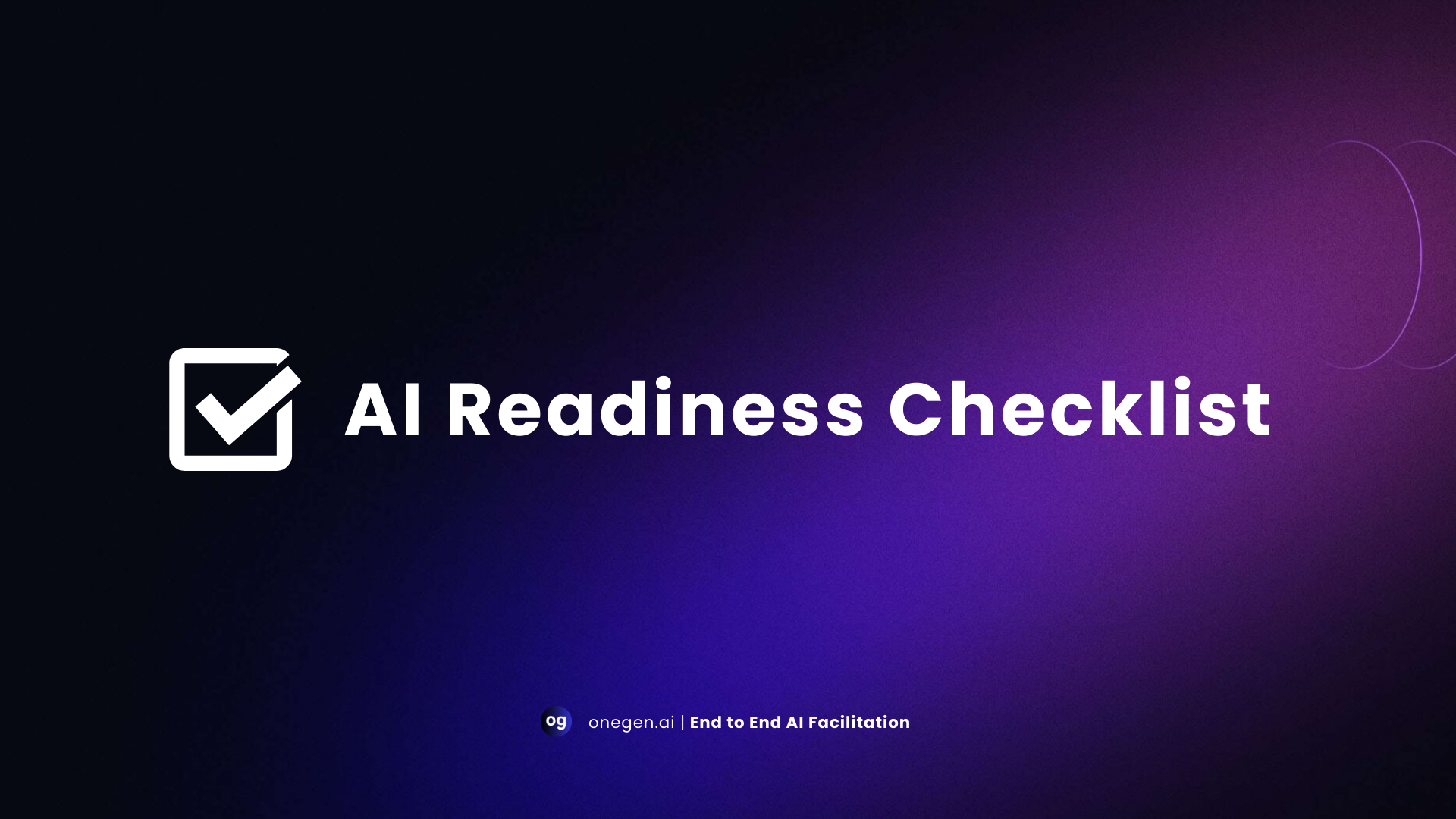AI is reshaping the future of business by allowing companies to automate processes, generate insights from large datasets, and improve decision-making. For both startups and enterprises, AI offers an opportunity to enhance productivity, cut costs, and create innovative solutions.
However, successful AI implementation requires more than just the right tools it demands careful preparation and a strategic approach. This guide provides a step-by-step roadmap to help businesses of all sizes integrate AI effectively into their operations.
Key Steps to Prepare for AI Implementation

Define Clear and Measurable Objectives
Before adopting AI, startups and enterprises need to outline specific, measurable goals. The objectives could range from automating routine customer service tasks to using AI for predictive analytics in supply chains. Setting these goals ensures that the business focuses on the areas where AI can deliver the most value.
For example, an e-commerce startup might want to use AI to enhance product personalization, leading to improved conversion rates.
Engage Stakeholders from Day One
Getting buy-in from all stakeholders is crucial to AI’s success. Startups should involve founders and investors, while enterprises must ensure that department heads, IT teams, and business leaders are aligned with the AI vision. Early engagement helps prevent miscommunication and resistance later on. For instance, a SaaS startup can involve its technical team in selecting AI tools that align with product goals, while enterprises can set up cross-departmental workshops to discuss how AI will impact daily workflows.
Assess Your Current Infrastructure
AI requires robust infrastructure, from high-performance computing to secure data storage. Startups can often rely on cloud-based platforms, while enterprises need to assess whether their legacy systems can integrate AI technologies. Onegen has partnered with cloud-based AI platforms like Google Cloud AI or Amazon Web Services (AWS) AI to provide scalable solutions, making it easier for businesses to start without heavy upfront investments in hardware. A retail startup, for example, can leverage cloud AI tools to predict consumer behavior without worrying about infrastructure limitations.
Invest in Quality Data Management
AI thrives on high-quality data. Startups may face challenges with limited datasets, while enterprises might struggle with fragmented and siloed data. Ensuring that data is clean, well-organized, and accessible is a crucial step. A company aiming to implement AI-powered customer service chatbots must first ensure it has accurate customer interaction data. Implementing robust data governance frameworks will also help enterprises meet regulatory standards while using AI.
Choose the Right AI Tools and Technologies
Selecting the appropriate AI tools is critical for both startups and enterprises. Startups need tools that are easy to deploy and scalable, while enterprises require AI solutions that can integrate with existing systems. For instance, businesses can explore popular machine learning platforms such as TensorFlow or PyTorch, they offer extensive resources for both beginners and experts. These platforms enable companies to start experimenting with AI without a steep learning curve, allowing them to build custom AI models suited to their needs.
Develop AI Skills in Your Team
AI expertise is a key component of successful implementation. Startups can look to hire AI specialists or partner with AI facilitation companies like Onegen AI. Enterprises, that might have more resources, should consider setting up AI-focused teams across departments.
Online platforms like Coursera and edX offer beginner and advanced courses on AI, data science, and machine learning, enabling employees to acquire relevant skills. This approach helps both startups and enterprises build the internal capacity required to develop and manage AI solutions.
Start Small with Pilot Projects
One of the best ways to introduce AI into an organization is through small, targeted pilot projects. A startup can begin by implementing an AI-driven chatbot to handle basic customer inquiries, measuring its impact before expanding AI into other areas like sales or marketing.
An enterprise might start by using AI in a single department—such as automating parts of its HR or finance processes—to identify challenges and opportunities before rolling AI out company-wide.
Monitor AI Performance and Iterate
AI isn’t a one-and-done solution it requires continuous monitoring and iteration. Startups can track key metrics such as efficiency improvements or customer satisfaction to evaluate AI’s effectiveness.
Enterprises need to monitor AI’s impact on broader metrics like operational costs and overall productivity.
For example, an AI-driven sales forecasting tool in a startup might need adjustments based on market changes, while a large enterprise could tweak its AI-powered supply chain model to adapt to fluctuating demand.

AI Readiness Checklist for Startups and Enterprises
To help businesses get started, here’s an AI readiness checklist that can serve as a guide to measure how prepared your startup or enterprise is for AI implementation:
- Objective Definition: Have you defined specific and measurable goals for AI in your business?
- Stakeholder Engagement: Are key decision-makers on board and aligned with your AI vision?
- Infrastructure Check: Is your current IT infrastructure capable of handling AI workloads?
- Data Quality: Do you have access to high-quality, well-organized data?
- AI Tools: Have you identified the right AI tools and platforms that match your business needs?
- Skills Development: Do you have or plan to develop the necessary AI skills within your team?
- Pilot Project: Have you identified a small project where AI can deliver quick, measurable results?
- Monitoring Plan: Is there a strategy in place to monitor AI performance and iterate based on results?
Easy Entry Exploring Cloud AI Platforms
For startups or enterprises looking for an easy entry point into AI, you can contact Onegen we have partnered with all major cloud-based AI platforms such as Google Cloud AI, Microsoft Azure AI, and Amazon AWS, and offer a low-barrier introduction.
Onegen is providing pre-built AI tools for machine learning, data processing, and natural language processing, which can be quickly integrated into your operations. The cloud infrastructure eliminates the need for upfront investment in hardware, allowing businesses to scale AI efforts based on actual needs and usage.
Need help with your AI initiatives? Schedule a meeting with Onegen


